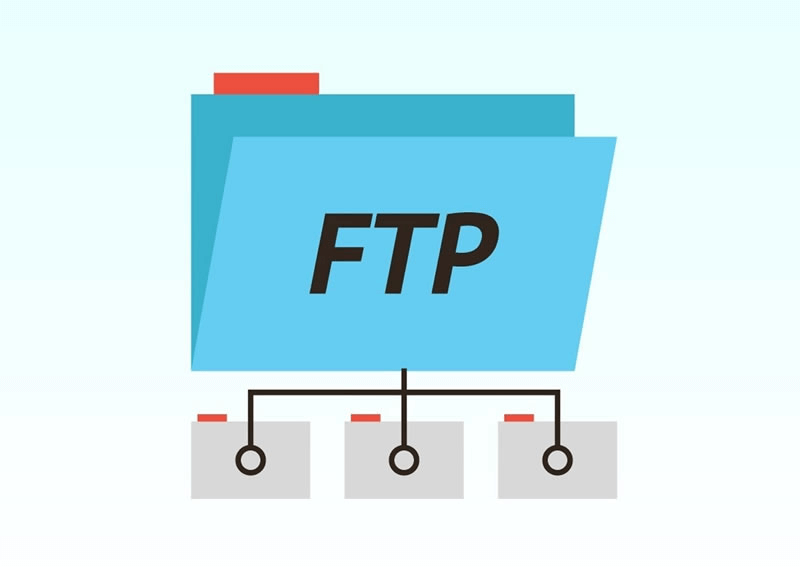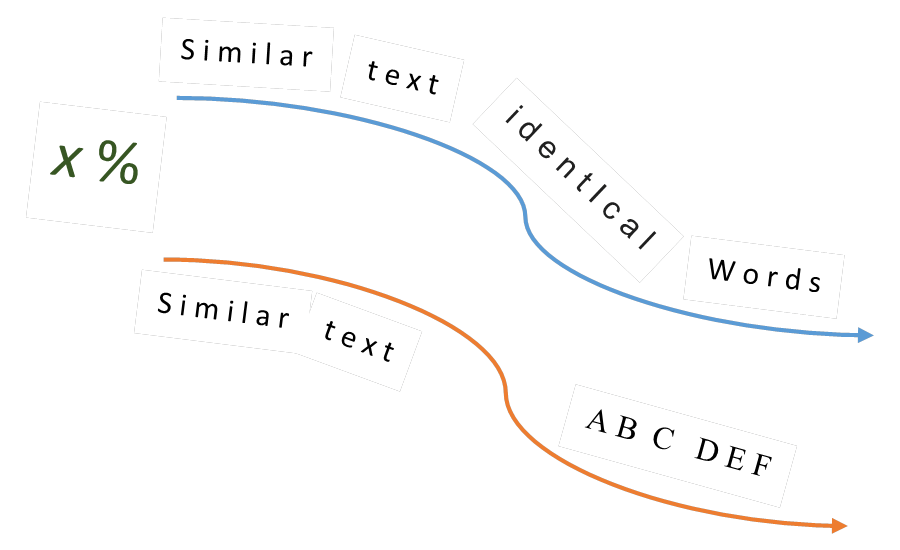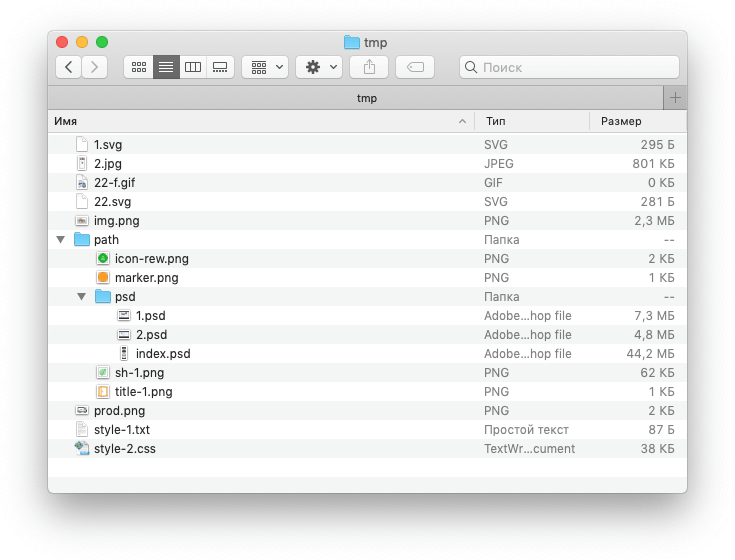(PHP 4 >= 4.3.0, PHP 5, PHP 7, PHP 
glob — Find pathnames matching a pattern
Description
glob(string $pattern, int $flags = 0): array|false
Parameters
-
pattern -
The pattern. No tilde expansion or parameter substitution is done.
Special characters:
-
*— Matches zero or more characters.
-
?— Matches exactly one character (any character).
-
[...]— Matches one character from a group of
characters. If the first character is!,
matches any character not in the group.
-
— Escapes the following character,
except when theGLOB_NOESCAPEflag is used.
-
-
flags -
Valid flags:
-
GLOB_MARK— Adds a slash (a backslash on Windows) to each directory returned
-
GLOB_NOSORT— Return files as they appear in the
directory (no sorting). When this flag is not used, the pathnames are
sorted alphabetically
-
GLOB_NOCHECK— Return the search pattern if no
files matching it were found
-
GLOB_NOESCAPE— Backslashes do not quote
metacharacters
-
GLOB_BRACE— Expands {a,b,c} to match ‘a’, ‘b’,
or ‘c’
-
GLOB_ONLYDIR— Return only directory entries
which match the pattern
-
GLOB_ERR— Stop on read errors (like unreadable
directories), by default errors are ignored.
Note:
TheGLOB_BRACEflag is not available on some non GNU
systems, like Solaris or Alpine Linux.
-
Return Values
Returns an array containing the matched files/directories, an empty array
if no file matched or false on error.
Note:
On some systems it is impossible to distinguish between empty match and an
error.
Examples
Example #1
Convenient way how glob() can replace
opendir() and friends.
<?php
foreach (glob("*.txt") as $filename) {
echo "$filename size " . filesize($filename) . "n";
}
?>
The above example will output
something similar to:
funclist.txt size 44686 funcsummary.txt size 267625 quickref.txt size 137820
Notes
Note: This function will not work on
remote files as the file to
be examined must be accessible via the server’s filesystem.
Note:
This function isn’t available on some systems (e.g. old Sun OS).
See Also
- opendir() — Open directory handle
- readdir() — Read entry from directory handle
- closedir() — Close directory handle
- fnmatch() — Match filename against a pattern
crayonviolent at phpfreaks dot com ¶
14 years ago
Since I feel this is rather vague and non-helpful, I thought I'd make a post detailing the mechanics of the glob regex.
glob uses two special symbols that act like sort of a blend between a meta-character and a quantifier. These two characters are the * and ?
The ? matches 1 of any character except a /
The * matches 0 or more of any character except a /
If it helps, think of the * as the pcre equivalent of .* and ? as the pcre equivalent of the dot (.)
Note: * and ? function independently from the previous character. For instance, if you do glob("a*.php") on the following list of files, all of the files starting with an 'a' will be returned, but * itself would match:
a.php // * matches nothing
aa.php // * matches the second 'a'
ab.php // * matches 'b'
abc.php // * matches 'bc'
b.php // * matches nothing, because the starting 'a' fails
bc.php // * matches nothing, because the starting 'a' fails
bcd.php // * matches nothing, because the starting 'a' fails
It does not match just a.php and aa.php as a 'normal' regex would, because it matches 0 or more of any character, not the character/class/group before it.
Executing glob("a?.php") on the same list of files will only return aa.php and ab.php because as mentioned, the ? is the equivalent of pcre's dot, and is NOT the same as pcre's ?, which would match 0 or 1 of the previous character.
glob's regex also supports character classes and negative character classes, using the syntax [] and [^]. It will match any one character inside [] or match any one character that is not in [^].
With the same list above, executing
glob("[ab]*.php) will return (all of them):
a.php // [ab] matches 'a', * matches nothing
aa.php // [ab] matches 'a', * matches 2nd 'a'
ab.php // [ab] matches 'a', * matches 'b'
abc.php // [ab] matches 'a', * matches 'bc'
b.php // [ab] matches 'b', * matches nothing
bc.php // [ab] matches 'b', * matches 'c'
bcd.php // [ab] matches 'b', * matches 'cd'
glob("[ab].php") will return a.php and b.php
glob("[^a]*.php") will return:
b.php // [^a] matches 'b', * matches nothing
bc.php // [^a] matches 'b', * matches 'c'
bcd.php // [^a] matches 'b', * matches 'cd'
glob("[^ab]*.php") will return nothing because the character class will fail to match on the first character.
You can also use ranges of characters inside the character class by having a starting and ending character with a hyphen in between. For example, [a-z] will match any letter between a and z, [0-9] will match any (one) number, etc..
glob also supports limited alternation with {n1, n2, etc..}. You have to specify GLOB_BRACE as the 2nd argument for glob in order for it to work. So for example, if you executed glob("{a,b,c}.php", GLOB_BRACE) on the following list of files:
a.php
b.php
c.php
all 3 of them would return. Note: using alternation with single characters like that is the same thing as just doing glob("[abc].php"). A more interesting example would be glob("te{xt,nse}.php", GLOB_BRACE) on:
tent.php
text.php
test.php
tense.php
text.php and tense.php would be returned from that glob.
glob's regex does not offer any kind of quantification of a specified character or character class or alternation. For instance, if you have the following files:
a.php
aa.php
aaa.php
ab.php
abc.php
b.php
bc.php
with pcre regex you can do ~^a+.php$~ to return
a.php
aa.php
aaa.php
This is not possible with glob. If you are trying to do something like this, you can first narrow it down with glob, and then get exact matches with a full flavored regex engine. For example, if you wanted all of the php files in the previous list that only have one or more 'a' in it, you can do this:
<?php
$list = glob("a*.php");
foreach ($list as $l) {
if (preg_match("~^a+.php$~",$file))
$files[] = $l;
}
?>
glob also does not support lookbehinds, lookaheads, atomic groupings, capturing, or any of the 'higher level' regex functions.
glob does not support 'shortkey' meta-characters like w or d.
uramihsayibok, gmail, com ¶
13 years ago
Those of you with PHP 5 don't have to come up with these wild functions to scan a directory recursively: the SPL can do it.
<?php
$dir_iterator
= new RecursiveDirectoryIterator("/path");
$iterator = new RecursiveIteratorIterator($dir_iterator, RecursiveIteratorIterator::SELF_FIRST);
// could use CHILD_FIRST if you so wishforeach ($iterator as $file) {
echo $file, "n";
}?>
Not to mention the fact that $file will be an SplFileInfo class, so you can do powerful stuff really easily:
<?php
$size
= 0;
foreach ($iterator as $file) {
if ($file->isFile()) {
echo substr($file->getPathname(), 27) . ": " . $file->getSize() . " B; modified " . date("Y-m-d", $file->getMTime()) . "n";
$size += $file->getSize();
}
}
echo
"nTotal file size: ", $size, " bytesn";?>
Lunaluna.msstyles: 4190352 B; modified 2008-04-13
LunaShellHomesteadshellstyle.dll: 362496 B; modified 2006-02-28
LunaShellMetallicshellstyle.dll: 362496 B; modified 2006-02-28
LunaShellNormalColorshellstyle.dll: 361472 B; modified 2006-02-28
Luna.theme: 1222 B; modified 2006-02-28
Windows Classic.theme: 3025 B; modified 2006-02-28
Total file size: 5281063 bytes
redcube at gmx dot de ¶
16 years ago
Please note that glob('*') ignores all 'hidden' files by default. This means it does not return files that start with a dot (e.g. ".file").
If you want to match those files too, you can use "{,.}*" as the pattern with the GLOB_BRACE flag.
<?php
// Search for all files that match .* or *
$files = glob('{,.}*', GLOB_BRACE);
?>
Note: This also returns the directory special entries . and ..
ni dot pineau at gmail dot com ¶
10 years ago
Note that in case you are using braces with glob you might retrieve duplicated entries for files that matche more than one item :
<?php
$a
= glob('/path/*{foo,bar}.dat',GLOB_BRACE);
print_r($a);?>
Result :
Array
(
[0] => /path/file_foo.dat
[1] => /path/file_foobar.dat
[2] => /path/file_foobar.dat
)
Ultimater at gmail dot com ¶
12 years ago
glob() isn't limited to one directory:
<?php
$results=glob("{includes/*.php,core/*.php}",GLOB_BRACE);
echo '<pre>',print_r($results,true),'</pre>';
?>
Just be careful when using GLOB_BRACE regarding spaces around the comma:
{includes/*.php,core/*.php} works as expected, but
{includes/*.php, core/*.php} with a leading space, will only match the former as expected but not the latter
unless you have a directory named " core" on your machine with a leading space.
PHP can create such directories quite easily like so:
mkdir(" core");
Sam Bryan ¶
11 years ago
glob is case sensitive, even on Windows systems.
It does support character classes though, so a case insensitive version of
<?php glob('my/dir/*.csv') ?>
could be written as
<?php glob('my/dir/*.[cC][sS][vV]') ?>
heavyraptor at gmail dot com ¶
15 years ago
glob() (array_sum() and array_map() in fact too) can be very useful if you want to calculate the sum of all the files' sizes located in a directory:
<?php
$bytes = array_sum(array_map('filesize',glob('*')));
?>
Unfortunately there's no way to do this recursively, using glob() (as far as I know).
david dot schueler at tel-billig dot de ¶
12 years ago
Don't use glob() if you try to list files in a directory where very much files are stored (>100.000). You get an "Allowed memory size of XYZ bytes exhausted ..." error.
You may try to increase the memory_limit variable in php.ini. Mine has 128MB set and the script will still reach this limit while glob()ing over 500.000 files.
The more stable way is to use readdir() on very large numbers of files:
<?php
// code snippet
if ($handle = opendir($path)) {
while (false !== ($file = readdir($handle))) {
// do something with the file
// note that '.' and '..' is returned even
}
closedir($handle);
}
?>
simon at paragi dot dk ¶
6 years ago
This is a simple and versatile function that returns an array tree of files, matching wildcards:
<?php
// List files in tree, matching wildcards * and ?
function tree($path){
static $match;// Find the real directory part of the path, and set the match parameter
$last=strrpos($path,"/");
if(!is_dir($path)){
$match=substr($path,$last);
while(!is_dir($path=substr($path,0,$last)) && $last!==false)
$last=strrpos($path,"/",-1);
}
if(empty($match)) $match="/*";
if(!$path=realpath($path)) return;// List files
foreach(glob($path.$match) as $file){
$list[]=substr($file,strrpos($file,"/")+1);
} // Process sub directories
foreach(glob("$path/*", GLOB_ONLYDIR) as $dir){
$list[substr($dir,strrpos($dir,"/",-1)+1)]=tree($dir);
}
return @
$list;
}
?>
nuntius ¶
13 years ago
First off, it's nice to see all of the different takes on this. Thanks for all of the great examples.
Fascinated by the foreach usage I was curious how it might work with a for loop. I found that glob was well suited for this, especially compared to opendir. The for loop is always efficient when you want to protect against a potential endless loop.
$dir=$_SERVER['DOCUMENT_ROOT']."/test/directory_listing/test";
echo $dir;
$filesArray=glob($dir."/*.*");
$line.="<pre>";
$line.=print_r($filesArray, true);
$line.="</pre>";
$line.="<hr>";
for($i=0;$i<count($filesArray);$i++) {
$line.=key($filesArray)." - ";
$line.=$filesArray[$i]."<br/>";
next($filesArray);
}
echo $line;
Note that I pulled the glob array keys if you should need them.
Also you can tweak it for searches with something like this... (case sensitive)
$search_names="Somedocname";
$filesArray=glob($dir."/".$search_names."*.*");
Enjoy!
Anonymous ¶
2 years ago
Include dotfiles excluding . and .. special dirs with .[!.]*
<?php
$all_files = array_merge(glob('.[!.]*'), glob('*'));
// or
$all_files = glob('{.[!.],}*', GLOB_BRACE);
?>
r dot hartung at roberthartung dot de ¶
14 years ago
You can use multiple asterisks with the glob() - function.
Example:
<?php
$paths = glob('my/*/dir/*.php');
?>
$paths will contains paths as following examples:
- my/1/dir/xyz.php
- my/bar/dir/bar.php
- my/bar/dir/foo.php
carlos dot lage at nospam at foo dot bar at gmail dot com ¶
14 years ago
I lost hours looking for the solution for this problem.
glob() wasn't eating up my directory names (stuff like "foobar[]"), and I searched online for some hours, I tried preg_quote to no avail.
I finally found the proper way to escape stuff in glob() in an obscure Python mailing list:
<?php
preg_replace('/(*|?|[)/', '[$1]', $dir_path);
?>
If you want to add a directory path before your pattern, you should do it like this:
<?php
glob(preg_replace('/(*|?|[)/', '[$1]', $dir_path).'*.txt');
?>
preg_quote WILL NOT work in all cases (if any).
eric at muyser dot com ¶
15 years ago
As a follow up to recursively determining all paths (by viajy at yoyo dot org) and opendir being faster than glob (by Sam Yong - hellclanner at live [dot] com).
The list all dirs code didn't seem to work, at least on my server (provided by parazuce [at] gmail [dot] com).
I needed a function to create an unlimited multidimensional array, with the names of the folders/files intact (no realpath's, although that is easily possible). This is so I can simply loop through the array, create an expandable link on the folder name, with all the files inside it.
This is the correct way to recurse I believe (no static, return small arrays to build up the multidimensional array), and includes a check for files/folders beginning with dots.
// may need modifications
function list_files($path)
{
$files = array();
if(is_dir($path))
{
if($handle = opendir($path))
{
while(($name = readdir($handle)) !== false)
{
if(!preg_match("#^.#", $name))
if(is_dir($path . "/" . $name))
{
$files[$name] = list_files($path . "/" . $name);
}
else
{
$files[] = $name;
}
}
closedir($handle);
}
}
return $files;
}
print_r(list_files("/path/to/folder"));
// example usage
function list_html($list)
{
$html = "";
foreach($list as $folder => $file)
{
if(is_array($list[$folder]))
{
$html .= "> (folder) " . $folder . "<br>";
$html .= list_html($list[$folder]);
}
else
{
$html .= " (file) " . $file . "<br>";
}
}
return $html;
}
echo list_html(list_files("/path/to/folder"));
sven at NOSPAM dot sven dot globalunix dot org ¶
13 years ago
If you want to use wildcard expressions (like they are used by glob() ) to search on strings, you can use this function:
<?php
function match_wildcard( $wildcard_pattern, $haystack ) {
$regex = str_replace(
array("*", "?"), // wildcard chars
array('.*','.'), // regexp chars
preg_quote($wildcard_pattern)
);
return
preg_match('/^'.$regex.'$/is', $haystack);
}$test = "foobar and blobnetc.";
var_dump(
match_wildcard('foo*', $test), // TRUE
match_wildcard('bar*', $test), // FALSE
match_wildcard('*bar*', $test), // TRUE
match_wildcard('**blob**', $test), // TRUE
match_wildcard('*a?d*', $test), // TRUE
match_wildcard('*etc**', $test) // TRUE
);
?>
guilleva at gmail dot com ¶
16 years ago
In some systems (AIX for example) GLOB_BRACE isn't defined and you get the error:
glob() expects parameter 2 to be long, string given in /XX/XX.php
<?
foreach (glob("{*.pdf,*.PDF}",GLOB_BRACE ) as $filename) {
echo "$filename n";
}
?>
The method may help you in this case.
<?
foreach (array_merge(glob("*.pdf"),glob("*.PDF")) as $filename) {
echo "$filename n";
}
?>
peter dot adrianov at gmail dot com ¶
13 years ago
Non-recursive search files, proceeding down directory tree.
<?php
function scandir_through($dir)
{
$items = glob($dir . '/*');
for (
$i = 0; $i < count($items); $i++) {
if (is_dir($items[$i])) {
$add = glob($items[$i] . '/*');
$items = array_merge($items, $add);
}
}
return
$items;
}
?>
lesion at autistici dot org ¶
16 years ago
Maybe all of you still know this, but it seems that if the directory contains some unresolved symlink, glob() simply ignore those files.
Mike ¶
11 years ago
<?phpif ( ! function_exists('glob_recursive'))
{
// Does not support flag GLOB_BRACEfunction glob_recursive($pattern, $flags = 0)
{
$files = glob($pattern, $flags);
foreach (
glob(dirname($pattern).'/*', GLOB_ONLYDIR|GLOB_NOSORT) as $dir)
{
$files = array_merge($files, glob_recursive($dir.'/'.basename($pattern), $flags));
}
return
$files;
}
}?>
bimal at sanjaal dot com ¶
10 years ago
To pick one of the file randomly from your directory with full physical path, you can write something like this:
<?php
function one_random_image_file()
{
$files = glob('../images/*.jpg');
shuffle($files);
return realpath($files[0]);
}
$image_to_read = one_random_image_file();
?>
parazuce [at] gmail [dot] com ¶
15 years ago
As a response to a post by viajy at yoyo dot org on 10-Feb-2007 04:50, he posted the following code:
<?php
function listdirs($dir) {
static $alldirs = array();
$dirs = glob($dir . '/*', GLOB_ONLYDIR);
if (count($dirs) > 0) {
foreach ($dirs as $d) $alldirs[] = $d;
}
foreach ($dirs as $dir) listdirs($dir);
return $alldirs;
}
?>
It is not best practice to use recursive functions like that, so I wrote a safe (non-recursive) function below:
<?php
function listdirs_safe($start)
{
$dir = $start;
$dirs = array();
$next = 0;
while (
true)
{
$_dirs = glob($dir.'/*', GLOB_ONLYDIR);
if (
count($_dirs) > 0)
{
foreach ($_dirs as $key => $_dir)
$dirs[] = $_dir;
}
else
break;$dir = $dirs[$next++];
}
return
$dirs;
}
?>
Example:
print_r(listdirs_safe('*'));
Output:
Array
(
[0] => Dummy folder/Dummy folder 2
[1] => Dummy folder/Dummy folder 2/Dummy Folder 3
[2] => Dummy folder/Dummy folder 2/Dummy Folder 3/4
[3] => Dummy folder/Dummy folder 2/Dummy Folder 3/Dummy folder 4
[4] => Dummy folder/Dummy folder 2/Dummy Folder 3/4/5
)
nataxia at gmail dot com ¶
16 years ago
Something I used to sort dir & subdir into array (multidimensional) reflecting dir structure.
function getRecursiveFolderList($curDir,$currentA=false)
{
$dirs = glob($curDir . '/*', GLOB_ONLYDIR);
$cur = 0;
foreach($dirs as $dir)
{
$currentA[$cur]['path'] = $dir;
$currentA[$cur] = $this->getRecursiveFolderList($dir,$currentA[$cur]);
++$cur;
}
return $currentA;
}
alan at synergymx dot com ¶
15 years ago
Here is a function that returns specific files in an array, with all of the details. Includes some basic garbage checking.
Variables
$source_folder // the location of your files
$ext // file extension you want to limit to (i.e.: *.txt)
$sec // if you only want files that are at least so old.
The function
function glob_files($source_folder, $ext, $sec, $limit){
if( !is_dir( $source_folder ) ) {
die ( "Invalid directory.nn" );
}
$FILES = glob($source_folder."*.".$ext);
$set_limit = 0;
foreach($FILES as $key => $file) {
if( $set_limit == $limit ) break;
if( filemtime( $file ) > $sec ){
$FILE_LIST[$key]['path'] = substr( $file, 0, ( strrpos( $file, "\" ) +1 ) );
$FILE_LIST[$key]['name'] = substr( $file, ( strrpos( $file, "\" ) +1 ) );
$FILE_LIST[$key]['size'] = filesize( $file );
$FILE_LIST[$key]['date'] = date('Y-m-d G:i:s', filemtime( $file ) );
$set_limit++;
}
}
if(!empty($FILE_LIST)){
return $FILE_LIST;
} else {
die( "No files found!nn" );
}
}
So....
$source_folder = "c:tempmy_videos";
$ext = "flv"; // flash video files
$sec = "7200"; // files older than 2 hours
$limit = 2;
print_r(glob_files($source_folder, $ext, $sec, $limit));
Would return:
Array
(
[0] => Array
(
[path] => c:tempmy_videos
[name] => fluffy_bunnies.flv
[size] => 21160480
[date] => 2007-10-30 16:48:05
)
[1] => Array
(
[path] => c:tempmy_videos
[name] => synergymx.com.flv
[size] => 14522744
[date] => 2007-10-25 15:34:45
)
agd243 at gmail dot com ¶
10 years ago
A simple function that find all files by extension an return it by an array.
<?php
function findFiles($directory, $extensions = array()) {
function glob_recursive($directory, &$directories = array()) {
foreach(glob($directory, GLOB_ONLYDIR | GLOB_NOSORT) as $folder) {
$directories[] = $folder;
glob_recursive("{$folder}/*", $directories);
}
}
glob_recursive($directory, $directories);
$files = array ();
foreach($directories as $directory) {
foreach($extensions as $extension) {
foreach(glob("{$directory}/*.{$extension}") as $file) {
$files[$extension][] = $file;
}
}
}
return $files;
}
var_dump(findFiles("C:", array ("jpg",
"pdf",
"png",
"html"
)));
?>
wang yun ¶
13 years ago
A function to quickly remove a directory (works in seconds for a hundred thousand files)
<?php
/**
* Remove the directory and its content (all files and subdirectories).
* @param string $dir the directory name
*/
function rmrf($dir) {
foreach (glob($dir) as $file) {
if (is_dir($file)) {
rmrf("$file/*");
rmdir($file);
} else {
unlink($file);
}
}
}
?>
Anonymous ¶
18 years ago
The example on this page will generate a warning if the glob function does not find any filenames that match the pattern.
The glob function result will only be an array if it finds some files and the foreach statement requires its argument to be an array.
By checking for the possibility that the result of the glob function may not be an array you can eliminate the warning.
Here's a better example:
<?php
$matches = glob("*.txt");
if ( is_array ( $matches ) ) {
foreach ( $matches as $filename) {
echo "$filename size " . filesize($filename) . "n";
}
}
?>
alan at ridersite dot org ¶
16 years ago
A couple of notes:
glob() handles symbolic filesystem links and resolves references to './', '../' nicely and handles an extra '/' character , at least on X-systems. e.g., glob("../*") will do next higher dir.
This is good to use so warnings or errors show as "../foo" and not your system's full path.
Several of the examples use a notation "*.*" when just plain "*" does the same thing. The "*.*" notation is misleading as it implies foo.ext will not be found with "*" because the "." is not present.
Watch the flags must not be strings. They are defined constants. Thus,
glob("../*", GLOB_ONLYDIR) works;
glob("../*", "GLOB_ONLYDIR") does not.
rene dot rathmann at gmx dot de ¶
9 years ago
You can do a recursive file search with yield.
<?php
function findAllDirs($start) {
$dirStack=[$start];
while($dir=array_shift($dirStack)) {
$ar=glob($dir.'/*',GLOB_ONLYDIR|GLOB_NOSORT);
if(!$ar) continue;$dirStack=array_merge($dirStack,$ar);
foreach($ar as $DIR)
yield $DIR;
}
}$fname='*.php';
$result=[];
foreach(findAllDirs('/var/www/localhost') as $dir) {
$match=glob($dir.'/'.$fname,GLOB_NOSORT);
if(!$match) continue;
$result=array_merge($result,$match);
}print_r($result);
?>
soywiz at gmail dot com ¶
10 years ago
Recursive glob for PHP>=5.5
function globRecursive($path, $find) {
$dh = opendir($path);
while (($file = readdir($dh)) !== false) {
if (substr($file, 0, 1) == '.') continue;
$rfile = "{$path}/{$file}";
if (is_dir($rfile)) {
foreach (globRecursive($rfile, $find) as $ret) {
yield $ret;
}
} else {
if (fnmatch($find, $file)) yield $rfile;
}
}
closedir($dh);
}
troy at troyonline dot com ¶
12 years ago
If you have open_basedir set in php.ini to limit which files php can execute, glob(...) will return false when there are no matching files. If open_basedir is not set, the very same code will return an empty array in the same situation.
This is unfortunate as a seemingly innocuous change causes different functionality that breaks code like:
foreach(glob("*.ext") as $file)
...
See this link if you have any questions as to why this is so:
http://bugs.php.net/bug.php?id=47358
endiku ¶
13 years ago
For those who need to recursively search a directory tree and cannot or wish not to call a function within itself here is another suggestion.
I tried the previously suggested listdirs_safe() and it didn't seem to find all subfolders in a directory tree.
There are two variations on the same theme.
Single Array.
<?php
$dir ='/dir';
while($dirs = glob($dir . '/*', GLOB_ONLYDIR)) {
$dir .= '/*';
if(!$d) {
$d=$dirs;
} else {
$d=array_merge($d,$dirs);
}
}
?>
Multiple arrays.
<?php
$n=0;
$dir ='/dir';
while($dirs = glob($dir . '/*', GLOB_ONLYDIR)) {
$dir .= '/*';
if(!$d) {
$d=$dirs;
} else {
$d[$n]=$dirs;
}
$n++;
}
?>
This will result in the glob looping via "dir/*/*/*/*.." until it is no longer finding a directory structure.
pope at q dot com ¶
15 years ago
alan at ridersite dot org 18-Mar-2007 03:26 -- Stated '*.*' is the same as '*' -- This is not true as * alone will return directories too and *.* will only return files with an extension such as .pdf or .doc or .php.
viajy at yoyo dot org ¶
16 years ago
this is a recursive function i wrote to return an array of all subdirectories of a dir
function listdirs($dir) {
static $alldirs = array();
$dirs = glob($dir . '/*', GLOB_ONLYDIR);
if (count($dirs) > 0) {
foreach ($dirs as $d) $alldirs[] = $d;
}
foreach ($dirs as $dir) listdirs($dir);
return $alldirs;
}
example:
print_r(listdirs('/some/path'));
mkas at destiny dot lt ¶
11 years ago
recursive file search
<?php
$path[] = 'starting_place/*';
while(
count($path) != 0)
{
$v = array_shift($path);
foreach(glob($v) as $item)
{
if (is_dir($item))
$path[] = $item . '/*';
elseif (is_file($item))
{
//do something
}
}
}
?>
Gabriel S. Luraschi ¶
10 years ago
Use this to exclude hidden files on MS Windows.
<?php
exec("dir "{$path}" /A:-H /B", $result);
?>
BigueNique at yahoo dot ca ¶
13 years ago
Here is the function array_prepend() used by my latest post of safe_glob().
<?php
/**
* Prepends $string to each element of $array
* If $deep is true, will indeed also apply to sub-arrays
* @author BigueNique AT yahoo DOT ca
* @since 080324
*/
function array_prepend($array, $string, $deep=false) {
if(empty($array)||empty($string)) return $array;
foreach($array as $key => $element)
if(is_array($element))
if($deep)
$array[$key] = array_prepend($element,$string,$deep);
else
trigger_error('array_prepend: array element',E_USER_WARNING);
else
$array[$key] = $string.$element;
return $array;
}
?>
NOSPAM sketch at infinite dot net dot au ¶
18 years ago
in the example below, i found i got an error if the directory was empty.
<?php
foreach (glob("*.txt") as $filename) {
echo "$filename size " . filesize($filename) . "n";
}
?>
I think its because glob()'ing an empty directory returns false, and so calling foreach (false as $value) will obviously break.
to fix this, i did the following:
<?php
$files = glob("*.txt) or array(); // give it an empty array if the directory is empty or glob fails otherwise
echo "$filename size " . filesize($filename) . "n";
}
?>
Hope this helps someone
info at urbits dot com ¶
17 years ago
I have been working towards a CMS-type design that is both modular and quite flat. For example, included files are all one level below the installation folder.
glob() just help me get rid of a lot of opendir() hassle. I wasn't sure if the double asterix would work - but it's fine:
foreach (glob(SERVER_PATH."/*/includes/*.php") as $inc) {
require($inc);
}
DMan ¶
17 years ago
Whilst on Windows, a path starting with a slash resolves OK for most file functions - but NOT glob.
If the server is LAUNCHED (or chdir()ed) to W:, then
file_exists("/temp/test.txt")
returns true for the file "W:/temp/test.txt".
But glob("/temp/*.txt") FAILS to find it!
A solution (if you want to avoid getting drive letters into your code) is to chdir() first, then just look for the file.
<?php
$glob="/temp/*.txt";
chdir(dirname($glob));
// getcwd() is now actually "W:temp" or whateverforeach (glob(basename($glob)) as $filename) {
$filepath = dirname($glob)."/".$filename; // must re-attach full path
echo "$filepath size " . filesize($filepath) . "n";
}
?>
Note also, glob() IS case sensitive although most other file funcs on Windows are not.
Philo ¶
2 years ago
It is also possible to nest alternations like this:
<?php
foreach (glob("{$dir}/*.{[jJ][pP]{,[eE]}[gG],[tT][iI][fF]{,[fF]}}", GLOB_BRACE) as $file) {
// finds both .jp(e)g and .tif(f) files
// please note that you should double-check the file type, though
}
David Spector ¶
5 months ago
Here is basic PHP code to do a recursive scan of an entire directory tree, allowing you to do processing when reaching each directory and file:
// Do a recursive scan of an entire directory tree,
// starting with the current working directory
// using relative filepaths
// Includes files starting with '.'
// Minimally tested on Windows and Linux
Scan('.');
function Scan($dir)
{
// Add code for each directory $dir here
$subdirs=glob($dir.'/{.[!.],}*',GLOB_BRACE);
foreach ($subdirs as $file)
{
if (is_file($file))
{
// Add code for each file $file here
}
else if (substr($file,0,1)!='./.')
Scan($file);
}
} // Scan
davewho at nexicom dot net ¶
2 years ago
Note that if you use braces ie. /*.{gif,jpg,htm} then glob returns
gifs before jpgs before htm files rather than in filename sequence.
bitman at biitworks dot de ¶
2 years ago
Brackets in the pattern maust be bracketed:
Filename = " [Fail2Ban] recidive *.eml"
The pattern should be:
$pattern = '[[]Fail2Ban[]] recidive *.eml';
Otherwise the brackets will be treated as character class identifier.
vincewansink at outlook dot com ¶
3 years ago
Note that when the documentation says the files will be returned in "alphabetical" order, you may not get the results you expect if your files are numbered.
For example, files will be returned in the following order:
file.1.txt
file.10.txt
file.2.txt
Not (as you might expect):
file.1.txt
file.2.txt
file.10.txt
sebastian dot wasser at gmail dot com ¶
7 years ago
I created a rglob function to support a '/**/' wildcard. You can even set the order to post-order or pre-order traversal.
<?phpfunction rglob ($pattern, $flags = 0, $traversePostOrder = false) {
// Keep away the hassles of the rest if we don't use the wildcard anyway
if (strpos($pattern, '/**/') === false) {
return glob($pattern, $flags);
}$patternParts = explode('/**/', $pattern);// Get sub dirs
$dirs = glob(array_shift($patternParts) . '/*', GLOB_ONLYDIR | GLOB_NOSORT);// Get files for current dir
$files = glob($pattern, $flags);
foreach (
$dirs as $dir) {
$subDirContent = rglob($dir . '/**/' . implode('/**/', $patternParts), $flags, $traversePostOrder);
if (!
$traversePostOrder) {
$files = array_merge($files, $subDirContent);
} else {
$files = array_merge($subDirContent, $files);
}
}
return
$files;
};?>
sharshun dot aliaksandr at gmail dot com ¶
7 years ago
<?phpfunction glob_recursive($pattern, $flags = 0){
// forked from https://github.com/rodurma/PHP-Functions/
// blob/master/glob_recursive.php
$files = glob($pattern, $flags);
foreach (
glob(dirname($pattern).'/*',
GLOB_ONLYDIR|GLOB_NOSORT) as $dir){
$files = array_merge($files, glob_recursive
($dir.'/'.basename($pattern), $flags));
}
return $files;
}
// $a=glob_recursive('c:/test_directory/'."*.*");
// print_r($a);function dirInfoReGet($s){
$a=glob_recursive($s."*.*");
$ar=glob_recursive($s."**/**");
$arr=array_unique(array_merge($a, $ar));
foreach (
$arr as $v) {
if (is_dir($v)) {
$arra[0][]=$v.'/';
} else {
$arra[1][]=$v;
}
}
sort($arra);
return $arra;
}
$a=dirInfoReGet('c:/test_directory/');
print_r($a);?>
http://i.stack.imgur.com/H7UF3.jpg
Best regards.
Anxiety35 at gmail dot com ¶
8 years ago
After fiddling with GLOB_BRACE a bunch, I have found the most items that can be included in the braces is about 10 before glob no longer returns any matches.
I have a scenario where there can be a thousand or more files to check for where I can't pattern match and need to check specific names. I was hoping to batch them in large groups to see if it would help performance. However, if I include more than 10 in a GLOB_BRACE the function will return FALSE.
torch at torchsdomain dot com ¶
16 years ago
Here is simple function that will find and remove all files (except "." ones) that match the expression ($match, "*" as wildcard) under starting directory ($path) and all other directories under it.
function rfr($path,$match){
static $deld = 0, $dsize = 0;
$dirs = glob($path."*");
$files = glob($path.$match);
foreach($files as $file){
if(is_file($file)){
$dsize += filesize($file);
unlink($file);
$deld++;
}
}
foreach($dirs as $dir){
if(is_dir($dir)){
$dir = basename($dir) . "/";
rfr($path.$dir,$match);
}
}
return "$deld files deleted with a total size of $dsize bytes";
}
joseph dot morphy at gmail dot com ¶
16 years ago
<?php
$html_array = glob("*.html");
function
sort_by_mtime($file1,$file2) {
$time1 = filemtime($file1);
$time2 = filemtime($file2);
if ($time1 == $time2) {
return 0;
}
return ($time1 < $time2) ? 1 : -1;
}usort($html_array,"sort_by_mtime");
//$html_array is now ordered by the time it was last modified
?>
Для поиска файлов на сервере хорошо подходит функция glob(), которая возвращает список файлов по заданной маске, например:
$files = glob('/tmp/*.jpg');PHP
В маске можно использовать следующие специальные символы:
* |
Соответствует нулю или большему количеству любых символов. |
? |
Один любой символ. |
[...] |
Один символ входящий в группу. |
[!...] |
Один символ не входящий в группу. |
{...,...} |
Вхождение подстрок, работает с флагом GLOB_BRACE. |
|
Экранирует следующий символ, кроме случаев, когда используется флаг GLOB_NOESCAPE. |
Доступные флаги:
GLOB_MARK |
Добавляет слеш к каждой возвращаемой директории. |
GLOB_NOSORT |
Возвращает файлы в том виде, в котором они содержатся в директории (без сортировки). Если этот флаг не указан, то имена сортируются по алфавиту. |
GLOB_NOCHECK |
Возвращает шаблон поиска, если с его помощью не был найден ни один файл. |
GLOB_NOESCAPE |
Обратные слеши не экранируют метасимволы. |
GLOB_BRACE |
Раскрывает {a,b,c} для совпадения с «a», «b» или «c». |
GLOB_ONLYDIR |
Возвращает только директории, совпадающие с шаблоном. |
GLOB_ERR |
Останавливается при ошибках чтения (например, директории без права чтения), по умолчанию ошибки игнорируются. |
Возможно использовать несколько флагов:
$files = glob('/tmp/*.jpg', GLOB_NOSORT|GLOB_ERR);PHP
Далее во всех примерах используется папка tmp со следующим содержимым:
1
Поиск в директории
Список всех файлов и директорий
$dir = __DIR__ . '/tmp';
$files = array();
foreach(glob($dir . '/*') as $file) {
$files[] = basename($file);
}
print_r($files);
PHP
Результат:
Array
(
[0] => 1.svg
[1] => 2.jpg
[2] => 22-f.gif
[3] => 22.svg
[4] => img.png
[5] => path
[6] => prod.png
[7] => style-1.txt
[8] => style-2.css
)Только файлы
$dir = __DIR__ . '/tmp';
$files = array();
foreach(glob($dir . '/*') as $file) {
if (is_file($file)) {
$files[] = basename($file);
}
}
print_r($files);PHP
Результат:
Array
(
[0] => 1.svg
[1] => 2.jpg
[2] => 22-f.gif
[3] => 22.svg
[4] => img.png
[5] => prod.png
[6] => style-1.txt
[7] => style-2.css
)Только директории
$dir = __DIR__ . '/tmp';
$files = array();
foreach(glob($dir . '/*') as $file) {
if (is_dir($file)) {
$files[] = basename($file);
}
}
print_r($files);PHP
Результат:
Array
(
[0] => path
)
Поиск по расширению
$dir = __DIR__ . '/tmp';
$files = array();
foreach(glob($dir . '/*.svg') as $file) {
$files[] = basename($file);
}
print_r($files);PHP
Результат:
Array
(
[0] => 1.svg
[1] => 22.svg
)Поиск по нескольким расширениям
$dir = __DIR__ . '/tmp';
$files = array();
foreach(glob($dir . '/*.{jpg,png}', GLOB_BRACE) as $file) {
$files[] = basename($file);
}
print_r($files);PHP
Результат:
Array
(
[0] => 2.jpg
[1] => img.png
[2] => prod.png
)Поиск по имени файла
Например, в названия файлов начинаются со слова «style»:
$dir = __DIR__ . '/tmp';
$files = array();
foreach(glob($dir . '/style*.*') as $file) {
$files[] = basename($file);
}
print_r($files);PHP
Результат:
Array
(
[0] => style-1.txt
[1] => style-2.css
)Или начинаются с цифр:
$dir = __DIR__ . '/tmp';
$files = array();
foreach(glob($dir . '/[0-9]*.*', GLOB_BRACE) as $obj) {
$files[] = basename($obj);
}
print_r($files);PHP
Результат:
Array
(
[0] => 1.svg
[1] => 2.jpg
[2] => 22-f.gif
[3] => 22.svg
)2
Поиск в дереве
Поиск по всем подкатегориям более сложный т.к. требует применение рекурсии.
Список всех файлов
function glob_tree_files($path, $_base_path = null)
{
if (is_null($_base_path)) {
$_base_path = '';
} else {
$_base_path .= basename($path) . '/';
}
$out = array();
foreach(glob($path . '/*') as $file) {
if (is_dir($file)) {
$out = array_merge($out, glob_tree_files($file, $_base_path));
} else {
$out[] = $_base_path . basename($file);
}
}
return $out;
}
$dir = __DIR__ . '/tmp';
$files = glob_tree_files($dir);
print_r($files);PHP
Результат:
Array
(
[0] => 1.svg
[1] => 2.jpg
[2] => 22-f.gif
[3] => 22.svg
[4] => img.png
[5] => path/icon-rew.png
[6] => path/marker.png
[7] => path/psd/1.psd
[8] => path/psd/2.psd
[9] => path/psd/index.psd
[10] => path/sh-1.png
[11] => path/title-1.png
[12] => prod.png
[13] => style-1.txt
[14] => style-2.css
)Список всех директорий
function glob_tree_dirs($path, $_base_path = null)
{
if (is_null($_base_path)) {
$_base_path = '';
} else {
$_base_path .= basename($path) . '/';
}
$out = array();
foreach(glob($path . '/*', GLOB_ONLYDIR) as $file) {
if (is_dir($file)) {
$out[] = $_base_path . basename($file);
$out = array_merge($out, glob_tree_dirs($file, $_base_path));
}
}
return $out;
}
$dir = __DIR__ . '/tmp';
$files = glob_tree_dirs($dir);
print_r($files);PHP
Результат:
Array
(
[0] => path
[1] => path/psd
)Поиск по имени/расширению
function glob_tree_search($path, $pattern, $_base_path = null)
{
if (is_null($_base_path)) {
$_base_path = '';
} else {
$_base_path .= basename($path) . '/';
}
$out = array();
foreach(glob($path . '/' . $pattern, GLOB_BRACE) as $file) {
$out[] = $_base_path . basename($file);
}
foreach(glob($path . '/*', GLOB_ONLYDIR) as $file) {
$out = array_merge($out, glob_tree_search($file, $pattern, $_base_path));
}
return $out;
}
$path = __DIR__ . '/tmp';
$files = glob_tree_search($path, '*.{jpg,png}');
print_r($files);PHP
Результат:
Array
(
[0] => 2.jpg
[1] => img.png
[2] => prod.png
[3] => path/icon-rew.png
[4] => path/marker.png
[5] => path/sh-1.png
[6] => path/title-1.png
)Чтобы в результирующих списках выводились полные пути к файлам, достаточно удалить функцию basename().
Другие публикации

Можно найти множество применений Яндекс Диска на своем сайте, например, хранение бекапов и отчетов, обновление прайсов,…

Протокол FTP – предназначен для передачи файлов на удаленный хост. В PHP функции для работы с FTP как правило всегда доступны и не требуется установка дополнительного расширения.

В статье приведен пример формы и php-скрипта для безопасной загрузки файлов на сервер, возможные ошибки и рекомендации при работе с данной темой.

phpQuery – это удобный HTML парсер взявший за основу селекторы, фильтры и методы jQuery, которые позволяют…

Один из вариантов поиска похожих статей в базе данных основан на схождении слов в двух текстах.

Ниже приведён список MIME-заголовков и расширений файлов.
I am storing user uploaded files like pdf images and txt files in separate folders using my php script i want to retrieve the file names from the folder upload and give the pdf and txt in a group and also way to search for specific file.
I also need to rename the file before to $ja variable
$ja
$da = date("dmY");
$ja = $uid.$da;
move_uploaded_file($mi, $uploadpath)
also used this code which i found in stack
Example 01:
<?php
// read all files inside the given directory
// limited to a specific file extension
$files = glob("./ABC/*.txt");
?>
Example 02:
<?php
// perform actions for each file found
foreach (glob("./ABC/*.txt") as $filename) {
echo "$filename size " . filesize($filename) . "n";
}
?>
Привет, друзья! Довелось мне поработать на одном коммерческом сайте. И, как выяснилось, с течением недолгого времени на сайте пропала часть изображений. Удалять их, конечно же, никто не удалял, и предположения были, что папку случайно перенесли в другое место.
Да, бывает и такое. Но суть сейчас не в этом. А в том, как я искал эту папку. Поскольку мне были известны имена некоторых файлов (а это уже хорошая зацепка при поиске), то я решил написать небольшой скрипт для поиска этих файлов по всему сайту. Вдобавок ко всему специально для аудитории сайта я доработал поиск и сделал несколько разных его вариантов.
Два варианта поиска файлов по названию на PHP
В этом блоке я представляю вашему вниманию два разных варианта поиска файлов на вашем хостинге по названию.
1. Точный поиск по названию:
<?php
header("Content-Type: text/html; charset=utf-8");
$path = $_SERVER["DOCUMENT_ROOT"];
$directory = new RecursiveDirectoryIterator($path);
$iterator = new RecursiveIteratorIterator($directory);
foreach ($iterator as $info) {
$name_file = substr($info->getfileName(), 0, strrpos($info->getfileName(), "."));
$name_search = array("robots", "www_pandoge_com"); // Список файлов
foreach($name_search as $key_name) {
if($name_file == $key_name) {
echo $info->getPathname()."<br>";
}
}
}
?>2. Неточный поиск (по наличию слова в названии):
<?php
header("Content-Type: text/html; charset=utf-8");
$path = $_SERVER["DOCUMENT_ROOT"];
$directory = new RecursiveDirectoryIterator($path);
$iterator = new RecursiveIteratorIterator($directory);
foreach ($iterator as $info) {
$name_file = substr($info->getfileName(), 0, strrpos($info->getfileName(), "."));
$name_search = array("robots", "www_pandoge_com"); // Список файлов
foreach($name_search as $key_name) {
if(preg_match("/".$key_name."/", $name_file)) {
echo $info->getPathname()."<br>";
}
}
}
?>Во всех вариантах – переменная $name_search содержит в себе слово (слова) для вашего поиска по файлам.
Код вы вставляете в файл PHP с любым именем, после чего грузите его на ваш хостинг.
Обращаетесь к нему на вашем сайте, и на выходе (при положительном результате) вы получите список найденных файлов с полным их местоположением.
Поиск файлов по расширению на PHP
В поисках файлов по расширению, как вы поняли, не учитывается имя, а учитывается его формат. Например, у изображений это может быть PNG, JPG или GIF, а у аудиофайлов – MP3, WAVE и другие.
Код для поиска:
<?php
header("Content-Type: text/html; charset=utf-8");
$path = $_SERVER["DOCUMENT_ROOT"];
$directory = new RecursiveDirectoryIterator($path);
$iterator = new RecursiveIteratorIterator($directory);
foreach ($iterator as $info) {
$file_formal = substr($info->getfileName(), strrpos($info->getfileName(), ".") + 1);
$name_search = array("mp3", "jpg"); // Список форматов
foreach($name_search as $key_name) {
if($file_formal == $key_name) {
echo $info->getPathname()."<br>";
}
}
}
?>Его вы также вставляете в PHP-файл, грузите на хостинг и обращаетесь для получения результатов поиска.
Обратите внимание, что регистр во всех вариантах имеет значение. И, например, если файл на хостинге имеет расширение MP3, а в переменной для поиска вы указали «mp3» – файлы найдены не будут. Но этот момент можно подправить с помощью функции «mb_strtolower».
Хорошим примером использования рекурсии, может послужить поиск файла в папке и всем вложенным подпапкам.
Для поиска файла, достаточно перебрать все файлы во всех папках и сравнить название файла с искомым. И в случае совпадения добавить путь до файла в массив найденных фалов.
$folderName = ABSPATH; // в какой папке ищем
$fileName = "xml"; // что ищем
$found = search_file( $folderName, $fileName );
print_r( $found );
/* Вернет:
Array
(
[0] => /home/example.com/xmlrpc.php
[1] => /home/example.com/wp-includes/class-wp-xmlrpc-server.php
[2] => /home/example.com/wp-includes/wlwmanifest.xml
)
*/
/**
* Поиск файла по имени во всех папках и подпапках
* @param string $folderName - пусть до папки
* @param string $fileName - искомый файл
* @return array Массив найденных файлов.
*/
function search_file( $folderName, $fileName ){
$found = array();
$folderName = rtrim( $folderName, '/' );
$dir = opendir( $folderName ); // открываем текущую папку
// перебираем папку, пока есть файлы
while( ($file = readdir($dir)) !== false ){
$file_path = "$folderName/$file";
if( $file == '.' || $file == '..' ) continue;
// это файл проверяем имя
if( is_file($file_path) ){
// если имя файла искомое, то вернем путь до него
if( false !== strpos($file, $fileName) ) $found[] = $file_path;
}
// это папка, то рекурсивно вызываем search_file
elseif( is_dir($file_path) ){
$res = search_file( $file_path, $fileName );
$found = array_merge( $found, $res );
}
}
closedir($dir); // закрываем папку
return $found;
}

